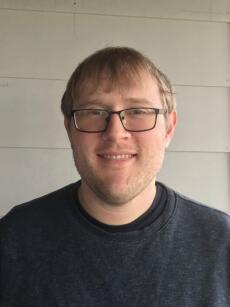Humboldt Research Awards for MM guests
We are delighted to announce that two of our future long-term guests will be sponsored by the Alexander von Humboldt Foundation: Prof. George Willis will be awarded the Humboldt Research Award and Dr. Colin Reid the Bessel Research Award. The two renowned mathematicians from the University of Newcastle, Australia, are co-organisers of our Focus Programme on totally disconnected groups this fall and will spend several months at Mathematics Münster to collaborate with various MM members.

About Prof. George Willis
George Willis, professor at the University of Newcastle, Australia, is an outstanding researcher, who has essentially single-handedly revolutionized the subject of totally disconnected locally compact (t.d.l.c) groups.
These groups appear in many different contexts, in particular as algebraic groups over local fields and in functional and harmonic analysis. When he started out with his programme on t.d.l.c. groups, almost no structure theory was available for these groups and it seemed absolutely implausible that any of the results that have now been established could be achieved. In model theory and descriptive set theory, totally disconnected groups appear as automorphism groups of countable structures and much new insights have recently been obtained. There is also a widening interest in the interactions of t.d.l.c. groups and various branches of logic. There have been new interactions between Nies, Segal and Tent on t.d.l.c. groups which has developed into a new branch of applications of different rigidity questions.
In Münster, George Willis will interact with various different groups in our department, apart from the logic group with Aleksandra Kwiatkowska and Katrin Tent, he will also interact with David Kerr and other members of the group around him in ergodic theory and various members of the group in operator algebras.

About Dr. Colin Reid
Colin Reid is a postdoctoral research fellow at the School of Information and Physical Sciences, University of Newcastle, Australia. He has played a major role in building the modern theory of totally disconnected locally compact (t.d.l.c.) groups, making a number of fundamental discoveries across all aspects of the theory.
With Pierre-Emmanuel Caprace and George Willis, Colin Reid established tools for studying t.d.l.c. groups from a local structure perspective, particularly in the context of locally decomposable groups and groups with micro-supported actions. These led to breakthroughs in the general structure theory of simple t.d.l.c. groups, about which very little was previously known, showing, for example, that in a compactly generated simple t.d.l.c. group G, if some infinite compact subgroup has nontrivial centralizer, then G is not amenable and has nontrivial contraction groups. Questions around simple groups are also important in the context of automorphism groups of countable structures as in many cases these groups are indeed simple and often of finite topological rank.
With Phillip Wesolek, Colin Reid also began the systematic decomposition theory of t.d.l.c. groups, showing amongst other things that every compactly generated t.d.l.c. group can be decomposed into finitely many normal factors that are compact, discrete or irreducible.
In Münster, he will work with Katrin Tent and Aleksandra Kwiatkowska on a number of questions for such groups also from the perspective of model theory and descriptive set theory as such groups are arising in these contexts as automorphism groups of countable structures.
Humboldt Research Award
Every year, the Alexander von Humboldt Foundation grants up to 100 Humboldt Research Awards to internationally leading researchers of all disciplines from abroad in recognition of their academic record to date. The award amount is €60,000. Award winners are invited to conduct a research project of their choice at a research institution in Germany in cooperation with specialist colleagues there. The award enables a total stay of between six months and a full year, which can be split into multiple stays.
Friedrich Wilhelm Bessel Research Award
The Friedrich Wilhelm Bessel Research Award for internationally recognised researchers is endowed with €45,000. Award winners are invited to conduct a research project of their choice at a research institution in Germany in cooperation with specialist colleagues there. The award enables a total stay of between six months and a full year, which can be split into multiple stays.
Links:
Focus Programme 2023: Actions of totally disconnected locally compact groups on discrete structures
Alexander von Humboldt Foundation

